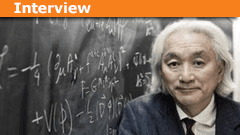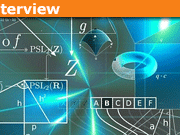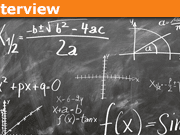Q&A Interview with Physicist Michio Kaku
Don’t forget to read Part 1 of this interview.
Professor Kaku, what do you think of “peak oil,” how serious is it? and what alternative sources of energy do you think will best provide the worlds needs in the coming decades after fossil fuels start to decline? (whether it be organic oils, nuclear breeder-types, fusion etc.)
Dr Michio Kaku:
It seems as if oil production is peaking right now. This is called Hubbert’s peak, I recall. This means that 50% of the total oil in the earth has already been taken out. This also means that oil prices will gradually soar as oil becomes harder to extract. As a consequence, I feel that we should be the transition to nonrenewable energy sources fairly soon. The immediate winner, esp. in Europe, is wind power. However, solar electricity is still too high to be commercially competitive with oil and coal. But, with mass productions, increased efficiency, etc. I think it might become competitive in the next decade. Fusion power, unfortunately, is still about 30-40 years away. No one knows for sure. Fission power has its own problems, e.g. waste, accidents, terrorism, sabotage, etc. So I think we are in a transition period. Hybrid cars, for example, are part of this transition, but it will take another 10-15 years before renewable technologies seriously compete with oil and coal.
I recently attended a lecture by 1999 nobel prize winner in physics, Gerard d’Hooft. If I wanted to win the the prize in 2005, what would I have to discover/ invent/ formulate?
Dr Michio Kaku:
To win a nobel prize, all you have to do is:
a) find out what dark energy is made of
b) find out what dark matter is made of
c) find the unified field theory.
You will not win a nobel prize violating the laws of thermodynamics, as some claim.
As the question goes on “Inside the Actors Studio”, what profession other than yours would you like to attempt?
Dr Michio Kaku:
When I was a child of around 10, I knew I wanted to become a physicist, although I did not know the precise word yet. Later, I felt that if I could not become a physicist by profession I would moonlight, as Einstein did, doing physics on the side while doing commercially viable work outside. Fortunately, I never had to test this theory, as I became a professor rather quickly, but I was prepared to be unemployed for several years, doing physics on the side, until I could get a job as a physicist, like Einstein. At Harvard I also thought maybe I could major in philosohy. So I took some philosophy courses, and I knew that this was not for me. I was shocked at how empty philosophy was, or at least how empty classical philosophy was, so I stuck it out with physics, and never regretted it.
Can you tell me if the Universe Expansion would eventually cause an increase in Gravitational Co-Hersion?
Dr Michio Kaku:
No, the expansion of the universe will have no effect on gravity itself. The fundamental laws are known, so we are examining them for solutions, and the expanding universe is one of them. Actually, ANY theory of gravity necessarily has an expanding or collapsing universe. Even Newton knew this. This is because gravity is strictly attractive, not repulsive, and hence any finite collection of stationary stars will necessarily have to collapse. This was a problem for Newton. Eventually, Newton found a loophole. He said that an infinite, uniform collection of stars, under gravity, will be stable. But he also realized that this uniform, infinite collection of stars is inherently unstable. The slightly jiggling will make it collapse. The solution to the problem is to have an expanding universe, or a collapsing one, That way you can avoid the paradox.
what aspects of String Theory are you currently working on?
Dr Michio Kaku:
Right now, I am working on M theory. The beauty of M theory is
that it can unify 5 string theories into one theory in 11 dimensions.
The problem is that the “action” for M-theory is totally unknown. M theory is not really a theory at all. It is more of a wish. The fundamental equations for M theory are totally unknown. For example, if you write down the equations for a membrane, you find that they are unstable and membranes fall apart. Strings are stable, but membranes are usually not stable. This means that M theory CANNOT be fundamentally a theory of membranes. So we don’t have a clue as what M theory is all about, since it is not really a theory of membranes, although it contains membranes. My goal is find an equation, 1 inch long, which will summarize all the properties of M theory.
Scientists in the past have erringly stated that the ‘end of physics’ would come very soon (such as when this thought occurred with the discovery of the electron). Do you believe that there will ever be an “end to physics”?
Dr Michio Kaku:
Yes, in the sense that the rules for chess can be known. That does not make you a grand master, however. So I believe that we will learn the fundamental rules of nature, but being a grand master at manipulating nature is inexhaustible. I like nobel laureate Steve Weinberg’s statement, when he said that the deeper we go in nature, the simpler it gets, but that he cannot imagine simplicity going on forever. Almost by definition, theories which get simpler and simpler eventually stop. In the same way, I think there will be plenty of jobs for physicists in the future but that eventually we will find the fundamental laws. But recently Stephen Hawking changed his mind, stating that perhaps he was wrong, and that there is no final theory. I don’t think so. But time will tell.
Do you support sending humans to Mars and the moon, or do you think that the money would be better spent on other missions for NASA.
Dr Michio Kaku:
Sending humans into space is secondary. I agree with the late Carl Sagan. He believed that one day we should be a two planet species, ie. live on Mars and the earth. But there is plenty of time to do this and now is not the right time. It costs $10,000 to put a pound of anything into orbit. Space travel is danger and extremely expensive. However, robots never complain, and, more important, never have to come back. So I support robotic missions, e.g. a permanent robot base on the moon and Mars. Because the space race of the 1960s was fueled by great power competition, it soon ended when the propaganda value of space travel diminished. If science was the driving force, and not politics, we might have a permanent robot base on the moon and Mars by now. So I am all for the manned exploration of space, but not now. Its simply too expensive, too dangerous, and yields almost NO science.
Do you think time travel is really possible? And, if so, when?
Dr Michio Kaku:
Yes, time travel might be possible. However, the energy at which you can bend time into a pretzel is the Planck energy, which is a quadrillion times the energy of the LHC. So I think that a Type III civilization may have the power to build a time machine. In my latest book, Parallel Worlds, I argue that any civilization facing the Big Freeze may be forced to open up a gateway either to another universe, or to our past, when things were warmer. But I also believe in the many worlds theory, so going back in time creates no paradoxes. If you kill your parents before you are born, then you have simply killed someone else’s parents who look exactly like your young parents, are genetically the same, but really are different.
As a Physicist, do you read professional journals to keep up with the latest in theoretical physics? Or what other sources do you use?
Dr Michio Kaku:
Most of use the web, rather than journals, to keep up. Journals are already months out of date by the time they come out. So most of us post our work on xxx..lanl.gov, which is the site for all the current research on string theory, math, physics, etc. Also, gossip is a great way to get your work out. Since there are hundreds of papers coming out each month, we rely on our friends talking up the latest work. Also, we attend seminars in which we exchange ideas with other physicists. So rarely do we use journals to keep up with research.
To prove an theory of everything, it has been rumored that a new form of mathematics will be created. What do you have to say about this
Dr Michio Kaku:
This might be true. Mathematicians have been startled to find new mathematics coming out of string theory. For example, Sophus Lie, the great mathematician, cataloged all possible Lie groups, which are used to categorize sub-atomic particles. However, he missed the super groups, which come out of string theory. In fact, almost all of calculus, differential geometry, topology had to be revised when physicists introduced supersymmetry. Suddenly mathematicians realized that they only had categorized a small fraction of all possible manifolds, surfaces, and algebras. However, I personally believe that we will be able to invent the new mathematics as we go along. Usually, we find “miracles” happening in string theory, in which incredibly powerful mathematical relations are discovered. Then later, we find that the origin of these “miracles” is that the string has incorporated higher symmetries which were missed before. Hence, we find that there is a simple way to explain away the miraculous properties of string theory, which come from the power of symmetry. So, as a guess, I would imagine that we have enough math, right now, to complete the theory. The problem is that no one earth is smart enough to solve these equations. The equtions for string theory are well-known. I wrote many of them myself. BUt no one knows how to solve them.
I saw a NOVA special on String Theory an hour ago, it said there were tiny vibrations called strings. If everything is made up of these vibrations then how does everything fit together to become one?
Dr Michio Kaku:
Each vibration of the string corresponds to a particle. Hence, an atom is made of electrons, quarks, etc. each of which is a vibration of a string. Thus, physics becomes the laws of harmony. Chemistry becomes melodies, since molecules are combinations of strings. The universe becomes a symphony of strings. And the mind of God as Einstein used to say, now becomes cosmic music resonating through 10 and 11 dimensional hyperspace.
You have used musical metaphors in your explanations of string theory to a popular audience, and you have mentioned a tate for classical music. I was wondering if a. you played an instrument, and b, if there are any musical compositions that inspired mathematical or physical ideas.
Dr Michio Kaku:
I used to play a trumpet in the Harvard Band, years ago. So I can read and play music. But there is only an analogy between music and physics. For example, great composers don’t really write down great melodies on first try. They spend most of their time day dreaming and looking out the window. Similarly, we physicists do not spend our time before blackboards, as in the cartoons. Both of us spend a lot of time looking out windows and playing with equations or melodies in our head. Only when we have worked out the melody do we finally get a piece of paper and work out the fine details. And when we do, the symbols we write down in music and in physics tend to resemble each other. So doing great physics is like doing great music. Instead of having great melodies, physicists try to find great principles.
How high a population do you think the Earth can support without oil?
Dr Michio Kaku:
That’s difficult to say. But the earth cannot support 6 billion people with a middle class standard of living. If all of us suddenly ate hamburgers, shopped at malls, used gasoline on the freeways, the strain on the earth would be too great. So we are already past the carrying capacity of a planet with 6 billion middle class people. So either we start to conserve energy, or we will pollute the earth and cause friction between nations. In the mid century, there will only be 2 or 3 superpowers. The demographics are clear. The superpowers of 2050 will be the US, China, and possibly India. Europe, because its population is actually collapsing will become increasingly irrelevant. Europe will be the Switzerland of the world. Rich, but largely irrelevant. But the problem is, do we have the resources to maintain a middle class life for these people?’ I don’t think so, so we have to change the way we define middle class. In the future, having a middle class life style may mean conserving a lot more, and using fuel more efficiently.
What kind of music do you like to listen to while laying around the house? Pop and classical.
Dr Michio Kaku:
I think we all listen to the music of our youth. So the rap music of today, which irritates parents, will become the favorite music of the elderly, years from now.
As you know, physics and art are intertwined…who’s your favorite artist and why?
Dr Michio Kaku:
I once puzzled over surrealism and cubism, until it was pointed out to me that Picasso and Dali were trying to capture the fourth dimension in their art. For example, if Picasso paints a woman who faces you, but her nose is to the side, this means that he was trying to capture the perspective of a hyperbeing looking at us. IF a 4D person where to see a women, he would see all around her all at once. Her nose, face, back of head, etc. would all be simultaneously visible to a hyperbeing. Similarly, Picasso painted women the way a 4D person would view her, from all sides simultaneously. Also, the melted clocks of Dali was an attempt to represent time as the fourth dimension. And in Cruxification Hypercubicus, Dali crucified Christ in the fourth dimension. I have a friend, a math professor at Brown, who told me that Dali would sometimes visit him and would use the opportunity to ask them plenty of questions about the fourth dimension. Remember that the fourth dimension was one of the dominant themes in art and science around the turn of the last century.
It was stated today that Doctors have successfully put human stem cells in a paralyzed rat and made it walk. They stated that this may be conceivable in the not too distant future. What do you have to say about this?
Dr Michio Kaku:
Studies in rats do not always translate into human studies. However, it is quite gratifying that stem cell research has advanced so far and so quickly. So I think eventually we will have a human body shop. In the future, we will replace aging and damaged organs the way we replace fenders. Already, we can grow ears, noses, bladders, skin, and bone in the lab. In the future, we will probably grow the liver (which is not so complicated) and maybe the pancreas, and then cure diabetes. But even if we can grow spinal tissue, we still have to connect the nerves meaning that the patient will have to painfully re-learn all the skills we take for granted.
What aspects of mathematics are involved in M theory?
Dr Michio Kaku:
Almost all. Topology, homology, differential geometry, Riemann surfaces, tensor calculus, Lie groups. But we physicists usually learn the math on our own. I would suggest any budding physicist to be familiar with Lie groups and differential geometry. The rest, you can learn by reading the literature. To see the math, see my book Introductions to Superstrings.
Dr. Kaku, if String Theory is wrong, God forbid[!], what would be the key indicator – the Achilles heel – indicating this as the case?
Dr Michio Kaku:
That’s a good question. We used to think that one day, the unique universe would emerge from the theory hence we could rule the theory right or wrong. But M theory has shown this idea to be incorrect OF the many universes found in string theory, most all of them seem to be stable. Hence, there is now no clear way to find the “true” universe among the string theory solutions. This means that it is much harder to rule it out. There may be a google number of universes predicted by string theory, and certainly our universe is among this google, but then it is hard to prove or disprove the theory, since all these universes seem to be equal. So disproving the theory is now much harder. The hall mark of a theory is that it is falsifiable. But falsifying string theory has become more difficult as we find more and more universes. But I am optimistic, because we have yet to find the final form of string theory, which is evolving backwards, since it was found accidentally in 1968, so the final equations for string theory are not known. When they are finally found, then perhaps we can devise a way to falsify or verify the theory.
Which Lie super groups and super algebras are most relevant to string and m-theory?
Dr Michio Kaku:
The important ones are the ones which contain the conformal and poincare groups. This means the set Osp(N/M) and SU(N/M). More exotic super groups do not contain the proper space time group, and hence do not reproduce Einsteins theory. So we are limited to the series Osp(N/M) and SU(N/M).
Read the next interview with Garrett Lisi
I have a BS in Information Sciences from UW-Milwaukee. I’ve helped manage Physics Forums for over 22 years. I enjoy learning and discussing new scientific developments. STEM communication and policy are big interests as well. Currently a Sr. SEO Specialist at Shopify and writer at importsem.com









Leave a Reply
Want to join the discussion?Feel free to contribute!